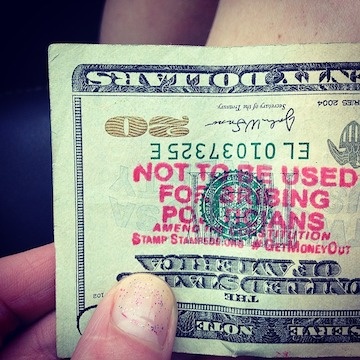
One of the beautiful things about learning Daf Yomi is seeing the enormously wide range of rabbinic thought, something that is often not possible in a more “traditional” setting. And the range is wide indeed – far wider and extending far beyond what we might expect from our great rabbinic Sages. Their unyielding search for truth allowed—nay, forced—them to interpret texts as they understood them, regardless of how unorthodox and unique such views may be. They feared no one and nothing save for their “fear of heaven”.
Rabbi Eliezer would not, could not, concede to the view of Rabbi Yehoshua and suffered the consequences of excommunication rather than recant (Bava Metzia 59b, and see here). In a somewhat happier, yet less well-known story recorded in the Mishna itself, Akavia ben Mehalalel was insulted by the suggestion that he should change his view in four rather obscure areas ofJewish law and thereby be appointed as the Av Beit, chief justice of the Supreme Court. “Better I be called a fool all my days and not be for one moment evil in G-d’s eyes so people should not say, ‘For the sake of power, he changed his view” (Eduyot 5:6). Our rabbis had a lot to learn in the area of power politics, not to mention political correctness.
“And one goat for a sin offering to G-d” (Bamidbar 28:15). While the sair, goat, for a sin offering is brought on all holy days—Rosh Chodesh, Rosh Hashanah, Yom Kippur, Pesach, Shavuot and Sukkot—only on Rosh Chodesh does the Torah mention that the sin offering is “for G-d”. This anomaly leads Rav Yehuda to argue that this offering is brought to atone for sins known only to G-d.
With the Mishna (Shevuot 2a) teaching that the sair brought on the holidays serves as atonement for various forms of tumat mikdash vekodoshav, the sanctity of the Temple and sacrificial foods, Rabbi Yehuda argues that the sair of Rosh Chodesh atones for those who were unaware—and never became aware—that they had entered the Temple while in a state of impurity.
The Gemara questions this teaching, as this expression “to G-d” is needed “for the teaching of Reish Lakish, for Rav Simeon ben Lakish said: Mah Nishtana sair shel Rosh Chodesh, why (how?) is the New Moon goat different [than all other goats] that it says ‘to G-d’? Said the Holy One, blessed be He: This goat shall be an atonement for Me, for I diminished the size of the moon[1]!” (Shevuot 9a).
This is a rather amazing teaching, and undoubtedly, had you or I said it, we would be accused of heresy[2]. The notion that G-d, “The Rock, His work is perfect; for all His ways are justice; a God of faithfulness and without iniquity, just and right is He” (Devarim 32:4) requires atonement for sinning strikes us as blasphemous.
As one might imagine, such an approach did not sit well with many. So, for example, the Rif explains that it is the Jewish people who need atonement every month for their sins. We bring a sin offering “to G-d” so that He will forgive us. It is man and only man who needs atonement. The commentary Eitz Yosef explains that the Midrash is written this way to teach us derech eretz, and is an expression of G-d’s humility. It is similar to the phrase “na’aseh adam”, let us make man (Breisheet 1:26), implying that it was not G-d alone who made man. As our Sages note, despite the fact that some may be led to heresy, G-d preferred to teach man a lesson in humility – that one should always consult with others when making important decisions—even if one is much greater than those advisors.
Here, too, the Eitz Yosef explains, G-d wants to teach man never to impute sin to others, and that one should always try to be forgiving of others even when convinced of one’s correctness and certain that those arguing otherwise are wrong. While the moon may have been guilty of improperly challenging G-d’s authority, G-d preferred to put the blame on Himself for making the moon smaller—a beautiful lesson for us all.
Perhaps in framing the discussion around G-d, Reish Lakish wanted to teach man how careful one must be to avoid sin and how prevalent sin is. If even G-d can “sin”, how much more so can and does man? And what better way to demonstrate this than by having a korban for sins we do not even know about? So often, we are not even aware of our sins and thus, we are totally dependent on G-d for atonement[3].
Referring to man when talking about G-d is in keeping with the notion that, since it is beyond human capability “to see [understand] My face and live”, all that the Torah tells us about G-d is meant for those created in His image. Thus, the 13 Attributes of Mercy teach less about G-d and more about how we humans are to be merciful, kind, compassionate and forgiving. As Rabbi Soloveitchik was wont to say, the creation story was placed in the Torah primarily to teach man that “just as G-d creates, so, too, must man create”.
These are very beautiful ideas, but it need not be pointed out that Reish Lakish actually says the opposite. It is quite clear that the “p’shat” of Reish Lakish’s teaching is that it is G-d, not man, who is the sinner here. And perhaps it is to this that the Eitz Yosef refers when he concludes by saying, “and surely, in this statement is a great secret for those who understand.”
While I am not privy to this secret and am far from understanding, Reish Lakish seems to be following the simple Biblical reading of a G-d who seems to make mistakes. And such “mistakes” begin with creation, where G-d Himself says he regretted making the world 9Breisheet 6:6). It seems clear that if not for the fact that “Noach found favour in G-d’s eyes”, G-d would have destroyed the world. Abraham challenging G-d regarding Sedom rests on the assumption that “the Judge of the world does not act justly”. While it turns out G-d was just, Abraham had no problem suggesting that it may not have been so. Moshe did not hesitate to point out to G-d that he was making a mistake in contemplating destroying the Jewish people as punishment for the sin of the golden calf.
While we may be able to give alternate explanations for the above, is the “simple” reading of the verse any less plausible? That may sound heretical but here, too, (see our discussion here) is another example of “If the verse had not been written, it would not be permitted to say such”.
Ultimately, however, we are meant to understand that Reish Lakish’s teaching matters little. Our Sages were most comfortable expressing the idea – metaphorically or not – that G-d “sins”. This is a most comforting thought, for if G-d can sin, what can one expect of man? Sin should never get us down and depressed and feeling that there is no hope. Even G-d can sin! Sin must motivate us to do better, and if and when it does, our “offerings” to G-d will bring atonement to man.
[1] This is a reference to the Midrash (see Chulin 60a) of the moon approaching G-d, asking how two luminaries can rule together. G-d then says, “Okay, I will make you smaller”. Hence, the Torah states that, “G-d created the two great luminaries” (Breisheet 1:16) and follows that by stating, “the large luminary to rule in the day and the small luminary to rule at night.” This part of the discussion is well known. What is not so well known is the continuation of the discussion where the moon responds, wondering why it should be punished for pointing out a truism. Back and forth it goes until G-d finally ‘gives in’ and instructs us to bring a sin offering to atone for His sin.
[2] Of course, whether or not something is actually heresy should have no correlation to who said it.
[3] While these two explanations of the phrase “chatat lashem” are independent of each other, the Gemara concludes that they are not mutually exclusive and in fact, both should be derived from the text.



